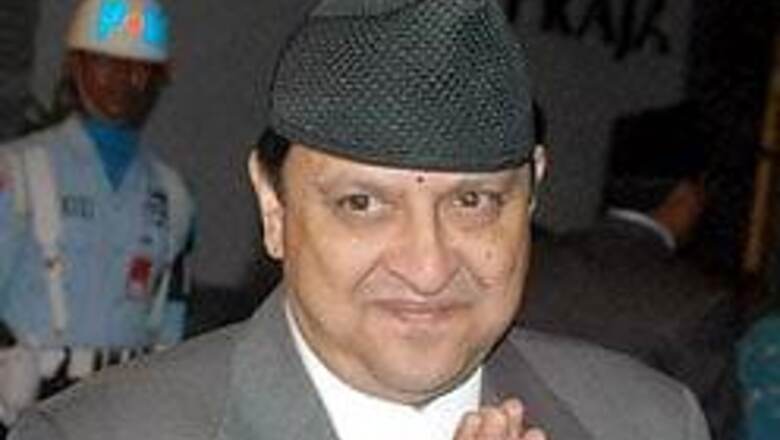
views
Kathmandu: Already cornered by the political parties, people and the Maoist guerrillas, Nepal's King Gyanendra now has another powerful opponent to contend with - the number 13.
After 15 months of direct rule by King Gyanendra, marked by corruption, nepotism and lawlessness, all major parties and the people are now demanding an election to choose between monarchy and a republic.
The Maoist guerrillas have been calling for an end to kingship since 1996 when they launched their armed uprising and their demand has never come so close to fulfilment as now.
The development, however, doesn't come as a surprise to astrologers since the present King and his heir, Crown Prince Paras, are dogged by the number 13, which is regarded as unlucky.
According to the official records, Gyanendra is the 12th king in the Shah dynasty that was established by Prithvi Narayan Shah, a chieftain from Gorkha in western Nepal, in the 18th century.
Gyanendra ascended the throne at an inauspicious time after a mysterious shootout in the palace on June 2, 2001 in which 10 members of the royal family including King Birendra and Queen Aishwarya were killed.
Crown prince Dipendra, who was reported as having killed his parents and other family members before turning the gun on himself, was crowned the 11th king even as he lay in a coma for two days.
Besides the inauspicious time, Gyanendra also has the dubious distinction of actually being the 13th king.
In 1950, when his grandfather king Tribhuvan was at loggerheads with his Rana prime minister, who was the de facto ruler, the king fled Nepal secretly, fearing for his life, taking with him his male heirs, son Mahendra and grandson Birendra.
Gyanendra, left behind as a child of four, was nevertheless declared king by the prime minister and "ruled" for a couple of months till another mass revolt ended the Rana regime and paved the way for Tribhuvan's return.
The brief stint in power is ignored by official records since the crowning was not recognised by the international community.
However, if it is ignored, Paras becomes the 13th in the line of descent.
Even if the upcoming election votes for the monarch to stay, Paras' succession is still in doubt.
Nepal's Parliament last month took the historic decision that royal successions would no longer be hereditary; the House would have the power to determine the King's heir.
Paras' reputation is regarded as the reason for the radical decision.
Before Paras became crown prince in 2001, nearly 600,000 Nepalis participated in a signature campaign, asking the then king Birendra to strip him of his royal title because of his disreputable conduct, including killing a popular singer in a car accident.
A section of Nepalis feel even if kingship is retained, after Gyanendra the crown should go to Paras' son, Hridayendra, who is four years, the same age as his grandfather when he became king.
The next year would show who prevails - the Maoists, Paras or the number 13.




















Comments
0 comment